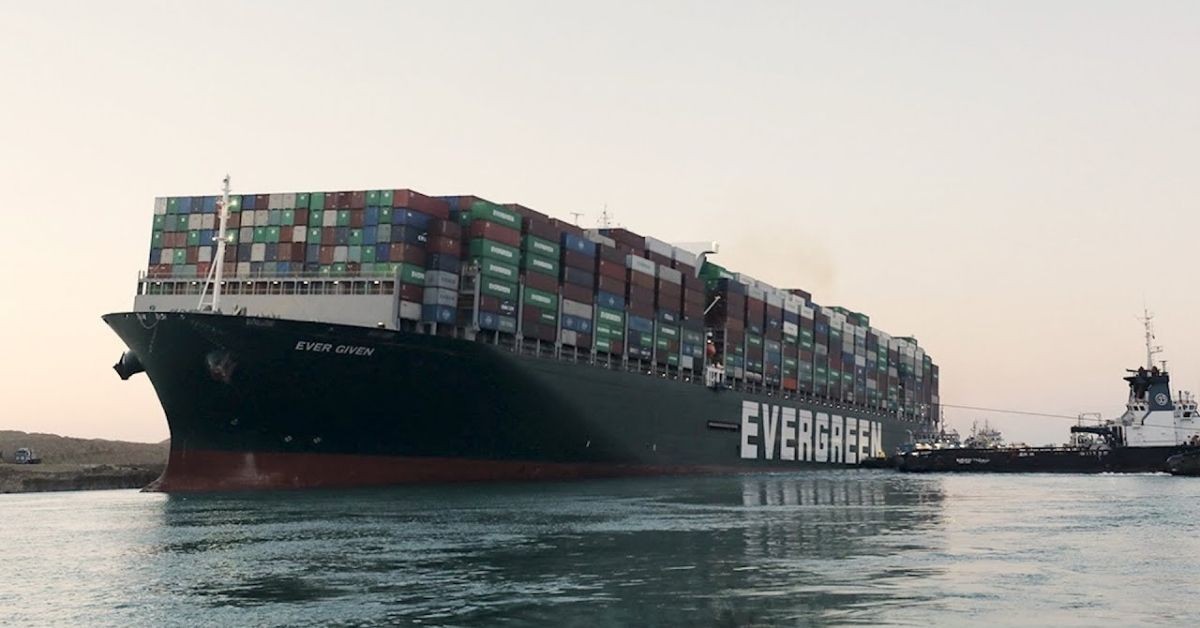The legal quagmire that has kept the Ever Given anchored in the Suez Canal is tying down thousands of containers holding cargo whose owners now face new payments and complications to get their long-delayed shipments.
The boxes, which likely hold consumer products, industrial parts and other goods bound for Europe, are stuck as the massive container ship is enveloped in rival claims arising from the nearly weeklong efforts to free the vessel that got caught last month in one of the canal’s narrow pathways.
The impasse leaves cargo customers in limbo under international maritime law and contracting provisions that can date back centuries and may require that companies shipping goods share in the costs of getting ships out of distress.
The legal complications grew murkier Tuesday when Egypt said it had seized the Ever Given to force the ship’s owner, Japan’s Shoei Kisen Kaisha Ltd., to settle claims over damage to the canal and lost business adding up to roughly $1 billion.
Shoei Kisen is asking clients with cargo on board to pay part of the costs of freeing the ship from the canal bank, which are estimated at about $2 million, according to people involved in the matter.
Officials with Shoei Kisen’s insurance program said a total of more than $3 billion of insurance is in place for liability claims.
The parties are awaiting findings of an investigation by the Suez Canal Authority on the cause of the accident. The cargo owners are likely to be among the first to pay as they seek to get their containers moving as legal questions are resolved.
But before the ship can sail, cargo owners will have to pay a security deposit amounting to around 10% of the estimated value of the cargo as a guarantee that they will abide by an insurance adjuster’s resolution when the final bill comes.
This deposit will be handled by insurers under principles known as general average that are included in cargo invoices and insurance documents.
The practice of sharing the cost to get a trapped ship moving derives from Rhodian Sea Law, a body of rules that governed sea trade and navigation during the Byzantine Empire starting in the seventh century. The law decreed that if merchandise must be thrown overboard to lighten a ship, all customers with goods on board will share in the cost of the lost goods.
If the parties didn’t agree to contribute, a ship could be seized to pay for the recovery cost or other damages.
The practice was formally adopted by the global shipping community under what is known as the York-Antwerp rules starting in 1890. The rules are part of generally accepted maritime insurance principles and have been regularly amended through international maritime organizations, most recently in 2016.
Thousands of customers with goods on the Ever Given could come under the legal umbrella. The ship, operated by Evergreen Marine Corp. of Taiwan, was carrying some 18,000 containers, in the standard maritime measure of 20-foot equivalent units, on a voyage from Asia to Europe when it slammed into a bank in the canal on March 23.
With so many containers on board, the overall potential liability could run to tens of millions of dollars.
For general average purposes, the insurance industry values cargo at around $20,000 per box, according to Allen Marks, a maritime lawyer and partner at London-based law firm Campbell Johnston Clark.
“But the process is complicated because some owners may be moving low-value cargo like scrap and others more expensive merchandise like laptops and tablets, and the adjuster will have to take this into account,” Mr. Marks said. “I expect the process to take between three and four years.”
Danish container operator A.P. Moller-Maersk A/S declared general average in 2018 when the Maersk Honam caught fire in the Arabian Sea. Cargo owners had to foot costs amounting to 54% of the value of the cargo to get their boxes shipped, according to people involved in the matter.
Names of the customers with goods on board the Ever Given haven’t been disclosed. American furniture manufacturer La-Z-Boy Inc. said in an investor conference March 24 that it had five containers on the vessel.
John Miklus, president of the American Institute of Marine Underwriters, said he expects the ship to move soon and the claims to be handled later.
“The ship will be released because if the Egyptians want people to keep using the Suez Canal they can’t hold it for ransom. The general average process will take years to sort out in the biggest Excel sheet you’ve ever seen,” he said.
Source : Hellenic Shipping News







